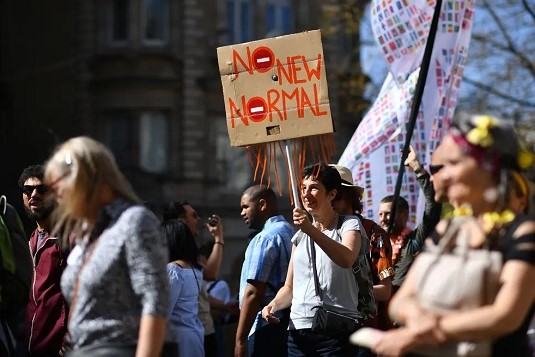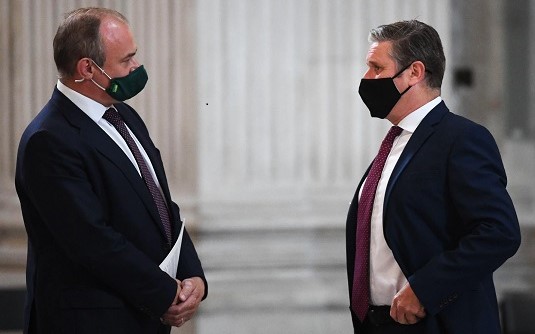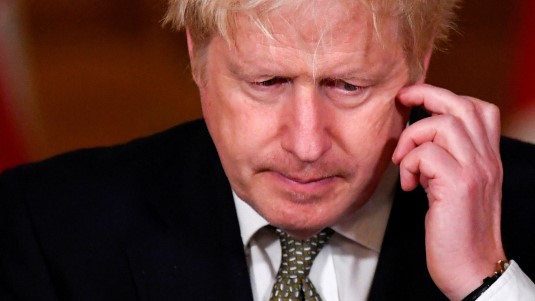
We begin with Forever by Tommy Farrow feat. Clementine Douglas, a cool customer that stood out not just because it's good, but because it didn't sound like anything else. Everlight feat. Emma Chatt's Obelisk is one of the year's filthiest cuts, and was a welcome EBM-adjacent tech trance intrusion in an otherwise sleepy episode of A State of Trance. Well done Ruben for sneaking this monster on when the boss wasn't looking. While we're feeling creepy/sinister, Revision by Maceo Plex and Program 2 feat. Giovanni is the best Depeche Mode/Sarah McLachlan collab never released. A masterpiece and, a rarity these days, a great video! gardenstate and GVN's Take Me There has featured on the blog previously and shouldn't need an introduction to anyone who regularly hits the play button. Don't worry, this isn't the last time you'll hear from them in this post. And last is the sunshine friendly Girlfriend from Kryder and B Jones, a ditty that would not have been out of place in the clubs and on the beaches 20 years ago.
That's some serious quality left out in the cold. The top ten had better be good. And, pleasingly, it is.
10. Ferry Corsten and Ruben De Ronde, Bloodstream
The flat Ben Gold mix gets all the plaudits and I have no idea why. Everything that is unique and special about the track is there in the vanilla cut. Ruben's underrated talent has meshed well with Ferry's polymath crazy skills to produce a cool, clean but not-too-deep prog house track. In their blurb they claim this was 80s inspired and came out while they were messing in the studio, but it's neither a cringing lurch into synthwave or a mess. Its composition is tight and packs a mighty punch. Enough to get the bloodstream racing, you might say.
9. The Chemical Brothers, The Darkness That You Fear
Nostalgia distilled. The video is a collage from 90s rave footage, but the sounds are not anything you'd have heard in between Love Decade, Altern8, and Bizarre Inc. What you will find here is a heavy interlacing of early Avalanches with traces of Doves. Darkness wants to turf you out into the light, arms stretched, blinded, free. Released last spring, it is suffused with the warmth of slow rising temperatures and an end-of-lockdown vibe. Exceptional, and it shows the Chemicals are far from over the hill.
8. Joy Crookes, Feet Don't Fail Me Now (Paul Woolford Remix)
The first of three remixes on the list, Joy Crookes's original was already excellent but this club-friendly makeover pushes Feet over the edge of greatness. One of those tunes that gets better with every listen. Slick (if not sick) production and a nudge up tempo, you'd be forgiven for thinking this was the original - it's enough to make you want to visit all of Joy's back catalogue and when you've had your fill plead with Paul for more reworks. This is remixing at its most accomplished and demands wider recognition.
7. Ilan Bluestone feat. Ellen Smith, Stranger to Your Love
Ellen's soft vocal is the heavenly match to Ilan's on point production. Overlooked in favour of the unexceptionally generic trance of the Stoneblue mix, it just doesn't work as an upbeat, uplifting cut. But it doesn't need to. If it ain't broken .... Unadorned Stranger is another sparkling starchild of 2021's house/trance crossover, a melancholic monster whose affects push the mood away from a lamentation over loves lost and into an elated contemplation of what is a near perfect composition.
6. DIM3NSION and DJ Nano, Mistake
The first unapologetic representative of your host's genre of choice, year end favourite DIM3NSION with DJ Nano have shown there's life in the old trance dog yet. Moving away from the late 90s sound just as unimaginative producers are flocking toward it, they've reached deeper into the pockets of Old Father Time. Mistake is a cranked up chip tune with serious reverb, tunefully resonating out the rhythms of the bubble jet printer, the loading screeches from the tape deck and dial up connection, and the bassline hammering of the keyboard. This is how retro should be done.
5. Tom Staar and Ferry Corsten feat. Darla Jade, Glow
Do words exist to convey the masterful qualities of this seamless techno/trance hybrid? Our lord System F effortlessly showcases his restless ingenuity with the genre he's done more to shape than anyone, while bringing to the fore Tom's talents - which caught attention with his rework of Punk. This meeting of minds has surpassed their first, distanced encounter in what is destined to be one of the greatest electronic pieces of the 2020s. Darla's haunting vocal, the downbeat lyrics married to uplifting waves and breaking crescendos points trance to a future that does not involve a permanent, diminishing rehashing of its glorious past.
4. Beyond Border, What Makes The World Go Round
I am a complete sucker for poppy EBM (Frozen Plasma, NamNamBulu), and World stands very much in this proud tradition. Pretty meaningless but optimistic change-the-world lyrics and a sublime melody makes for an uplifting experience - please don't stop trying to make euphoric Future Pop a thing. Scrape away the flashes of dark electronica and standing revealed is a bop-happy goth disco floor filler. It is high time the genre got wider props and though World is not a breakthrough hit, it very much deserves to be.
3. gardenstate, Gjon's Tears, Repondez Moi
Shit me, a Eurovision song in the top 10? Gjon's Tears made third place in this year's contest with their unusual power ballad, but in the hands of gardenstate it has transcended the confines of the world's greatest song competition and landed in the same spot on this list. Trancey breakbeats and a soaring male vocal make unlikely bedfellows, but here they snook under the covers and produced a heaving, passionate classic. A fist sized gem of a song which, again, fuses a melancholic aspect with melodramatic euphoria, if this is the shape of gardenstate things to come we are truly blessed.
2. Stoneface and Terminal, Moonscape
There's been a minor eruption of space themed trance this year, with notable contributions from Darren Tate and Armin Van Buuren X Jorn Van Deynhoven, but none of them are close to this magisterial masterpiece. Our most dynamic of duos have knocked about for a while, and in Moonscape S+T have distilled the purest essences of trance into a signature tune they'll be forced to play for years to come. The extended mix is the best way to appreciate this peerless track, and will have you bouncing over craters and kicking up lunar dust in no time. Just incredible.
1. Sian Evans, Hide U (Tinlicker Remix)
Finally getting a release this year, invariably remixes and reworkings of old tunes fall flat. But I'm happy to report this latter day collab between Sian and the Tinlicker boys doesn't just do the Kosheen original justice, but improves on it in every conceivable way. The monotone juggernaut of the early 00s classic is turned inside out, becoming its opposite. Sian's baritone vocal is the ideal foil for something unexpectedly joyous, making the Queen of Welsh DnB the Empress of this year's creme de la creme.
And there we have the top 10 of the year, some of whom will undoubtedly be in the running for track of the decade. What were your songs of the year, and are there any electronic tunes this list criminally overlooked?
Image Credit








